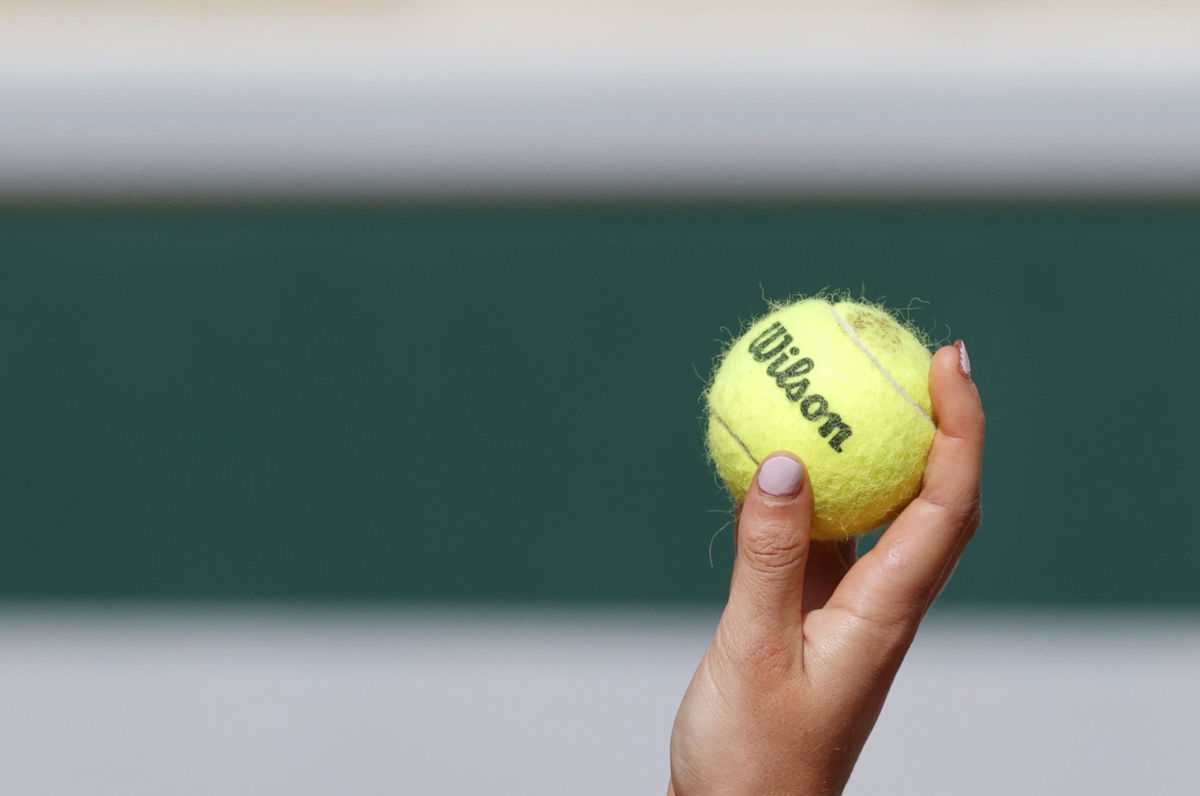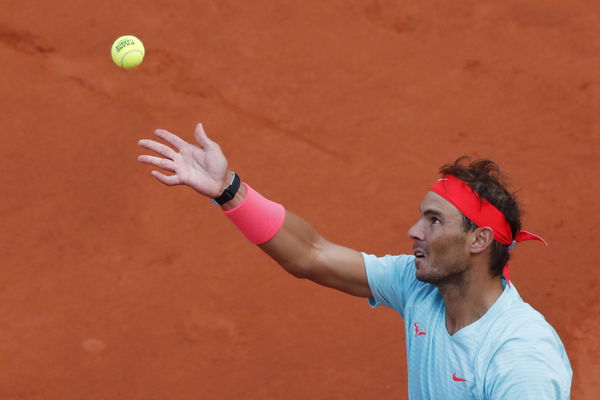
Reuters
Tennis – French Open – Roland Garros, Paris, France – October 4, 2020. General view of a tennis ball being held up during the fourth round match between Spain’s Rafael Nadal and Sebastian Korda of the U.S. REUTERS/Christian Hartmann

Reuters
Tennis – French Open – Roland Garros, Paris, France – October 4, 2020. General view of a tennis ball being held up during the fourth round match between Spain’s Rafael Nadal and Sebastian Korda of the U.S. REUTERS/Christian Hartmann
Sports equipment manufacturer, Wilson, is making its contribution towards a sustainable and environment-friendly future. Wilson Tennis is doing its bit to ensure that the cans in which tennis balls are packed are not wasted and disposed of in a way that damages the environment.
Watch What’s Trending Now!
Every year, as many as 125 million tennis ball cans end up in landfills. To avoid this, Wilson recently introduced 100 percent recyclable packaging for tennis balls.
ADVERTISEMENT
Did you know? ~125 million tennis ball cans end up in landfills each year.
Our Triniti tennis ball is our first step toward a more sustainable future featuring 100% recyclable packaging 🎾♻️🌎 pic.twitter.com/aOxMNKyJCt
— Wilson Tennis (@WilsonTennis) November 2, 2020
The new packaging of Wilson’s Triniti tennis balls replaced the usual plastic cans. Instead of becoming toxic waste, these tennis ball cans are now recycled and renewed for use.
ADVERTISEMENT
How the Wilson tennis balls are helping
Along with the cans, the Triniti tennis ball is also eco-conscious. Matches usually see the balls change after every few games, with fresh tennis balls coming in. The Triniti ball avoids that and maintains the freshness of the ball four times longer than usual.
ADVERTISEMENT
This reduces the wastage of the tennis balls as lesser balls are used for longer durations. At the same time, it does not reduce efficiency. Every year, up to 400 million balls end up in landfills.
ADVERTISEMENT
Wilson also claimed that 5 percent of the profits earned from the Triniti balls will be used to support sustainability efforts across the globe.
ADVERTISEMENT
Additionally, Wilson recently partnered with a tennis ball recycling company called ‘Recycleballs’. It is a not-for-profit organization that collects and recycles balls. Wilson, in association with Recycleballs, set up boxes at various locations. Players can deposit used balls in those. Recycleballs then work on the recycling process.

Reuters
Tennis – French Open – Roland Garros, Paris, France – October 4, 2020. Spain’s Rafael Nadal in action during his fourth round match against Sebastian Korda of the U.S. REUTERS/Gonzalo Fuentes
Top players impressed with the Wilson Triniti balls
ADVERTISEMENT
In 2019, Wilson athletes such as Grigor Dimitrov, David Goffin, Alex De Minaur, and Kyle Edmund practiced with the Triniti balls and gave their verdict on the same. All of them were impressed by the bounce of the ball and how it felt off the racquet.
ADVERTISEMENT
“Anything can really do to help the environment… Creating a ball that doesn’t need that pressure but then performs like a true ball. I think is massive,” Edmund said. “I’m pretty surprised, to be honest. Didn’t expect the ball to bounce that well,” Dimitrov said.
ADVERTISEMENT
Wilson balls were a major talking point during the recently concluded French Open 2020. Players found it difficult initially to adjust to the new balls used for the first time at Roland Garros, but as the tournament progressed, it seemed to work well.
Any initiative that helps the environment is useful. Wilson’s initiative is unique and will be a huge plus for the environment.
Read more – All You Need to Know About the New Tennis Balls at French Open 2020
ADVERTISEMENT
ADVERTISEMENT
ADVERTISEMENT
